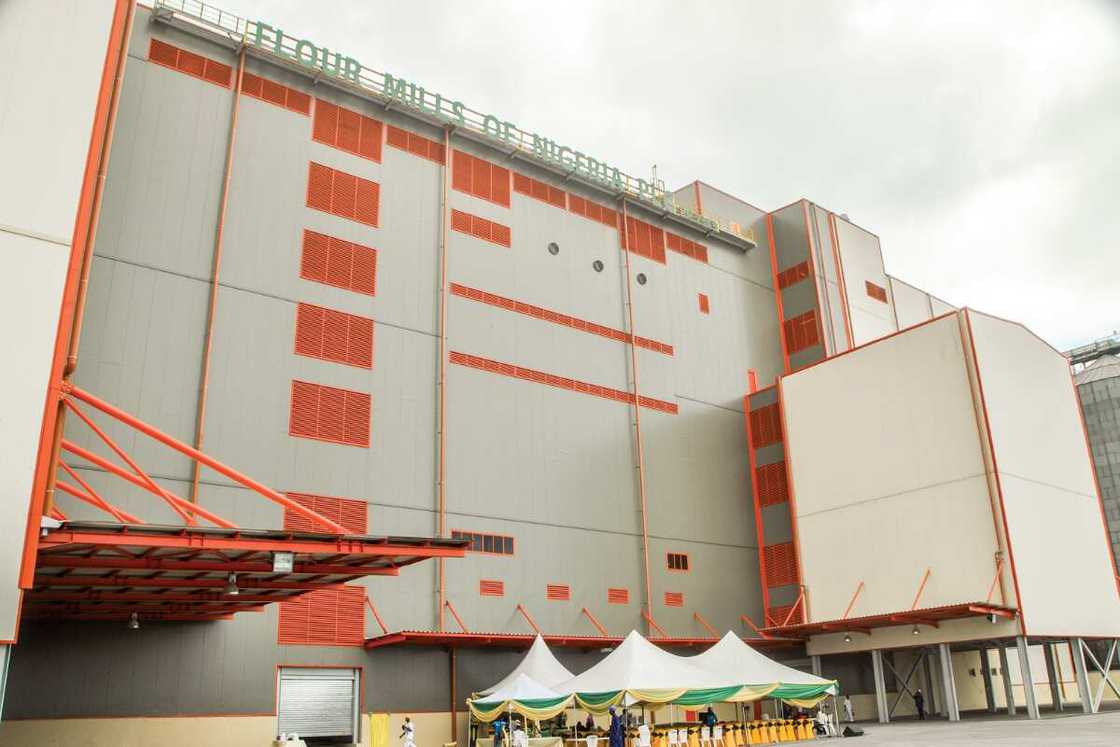How Flour Mills of Nigeria is Localizing Sustainability across Various Touchpoints
The need for sustainability strategies that can facilitate a paradigm shift away from unsustainable and dominant globalization to pragmatic ways of developing local content and capacities for security and self-sufficiency within nations gave rise to the quest for content localization in Nigeria.
Localization, in this context, is believed to occur where a country, region, community, or town owns and sources their essential life requirements such as water, food, energy, and housing materials locally; minimizes import dependence; prioritizes environmental protection and community participation in social investment and training programs as well as socio-economic growth.

Although, the term ‘sustainability’ has been given various meanings and interpretations over the years, building an eco-system that does not compromise the standard of living for people today or in the future is paramount to human and environmental longevity. There is an urgent need for a paradigm shift, as opposed to the continuation of business as usual despite long‐standing, dire scientific warnings. The required transformative measures are to build local capacities for the sole purpose of ensuring the sustainability of local communities.
Flour Mills of Nigeria Plc (FMN), Nigeria’s leading provider of quality products and a notable player within the FMCG industry is committed to sustainable development and has taken deliberate measures to enshrine local content utilization across its business operations. FMN is the industry lead with respect to localizing sustainability in Nigeria.
The FMN sustainability approach focuses on local content development through the EESG (Environmental, Economic, Social, Governance) execution framework as an enabler and sustainability leader, FMN is greatly committed to increasing local content both in inputs and products. The need to create value further back in the supply chain and reduce dependence on imported raw materials has been identified as a strategic imperative for the Group in the years ahead.
When it comes to supply chain management, FMN continues to explore options and initiatives to further embed ‘responsible supply chain practices within the business operations to ensure that all purchases com¬ply with required policies, certifications, and practices. Some of these policies and certifications are the restriction of Hazardous Substances Directive (RoHS), ISO 14001 Environmental Management System (EMS) Certification, ISO 9001 Quality Management System (QMS); utilization of energy efficient machinery across its Manufacturing facilities, some powered in part by alternative energy sources (i.e. biomass); Electronic Product Environmental Assessment Tool (EPEAT) compliance, and formal environmental-packaging policy.
Being a socially responsible company, FMN drives social value creation for its people and local communities, the focus is to profitably do business while creating long-term social impact for communities. The Group continues to strengthen the capabilities of its stakeholders, from the network of smallholder farmers, and young entrepreneurs, to its employees, students, communities, and the Nation at large. FMN remains vested in the provision of enabling structures in the areas of human capital development, education, research, provision of quality inputs, specialized training, agronomy support, aggregation, and related extension services.
From the upstream supply chain outlook, FMN’s continued investment in the Food and Agro-Allied sector is predicated on the need to achieve economies of scale in food production via crop-specific value chains, increasing the productivity of and ultimately modernizing the country's agricultural sector. In the downstream sector, The Group continues to innovate the supply chain system for process efficiency so that consumers can promptly access the Brand’s products and services from their places of comfort.
Furthermore, the Group established a Backward Integration Program (BIP) to create value in the supply chain and reduce dependence on imported raw materials, especially sugar and wheat. A clear demonstration of its commitment to the development of the sugar value chain in Nigeria is through Sunti Golden Sugar Estates in Niger State, which is widely regarded as the country's premier greenfield investment in the sugar industry since its inception in 2012. With a total landmass of over 21,000 hectares, including a world-class sugar refinery, the company continued to expand operations at Sunti Golden Sugar Estate including an additional $300 million in Nasarawa state and a commitment to investing another N70 billion over the next three years to develop the upland area of the Sunti Sugar Estate.
More so, in pursuit of increased local production of raw materials, the Group has established seed multiplication sites in Nasarawa and Kaduna for trials and testing for locally engineered seeds. At Kaboji Farms, FMN partners with smallholder farmers, creating an enabling environment for farming by providing land, security, and infrastructure while they produce the crops essential to operations. This model has also been implemented through FMN’s Project Yalwa – designed to strengthen farmers’ capacity to boost maize and soya beans production across the country. Additionally, FMN is building high-yield, high-resistant cassava seedlings at SAH Lab, a partnership with the cassava supply chain stakeholders in Ososa, the Group also acquired more land in Edo state for processing premium oil palm in partnership with Okomu Oil Palm Company Plc at AgriPalm.
Protecting the environment while conducting business remains a central component of the Group’s sustainability pursuits. Flour Mills conducts its business operations in a way that maximizes the natural ecosystems while preserving it for the benefit of the present and future generations. For environmental impact management, the Group focuses on, waste prevention and management, supply chain impact management, and energy efficiency. These processes are in place to track the amount of waste produced (including packaging materials) and these initiatives are tailored to Reduce, Reuse, or Recycle them. There are also various options utilized for reducing virgin material use and hazardous materials consumption while educating consumers on more sustainable ways of disposing of packaging materials.
As localization is gradually becoming globally adopted for the purpose of regaining sustainability, more nations are likely to experience healthy, flourishing, and globally diverse communities. Localization would also involve (particularly for high-income countries) more constrained production and consumption, entailing minimization of the redistribution of resources. Thus, to ensure that Nigeria partakes in this globally viable process of local content development, corporate organizations, the government, and key opinion leaders within and outside the country need to emulate the FMN model of localizing sustainability within this supply chain.
[Sponsored]
Source: Legit.ng


